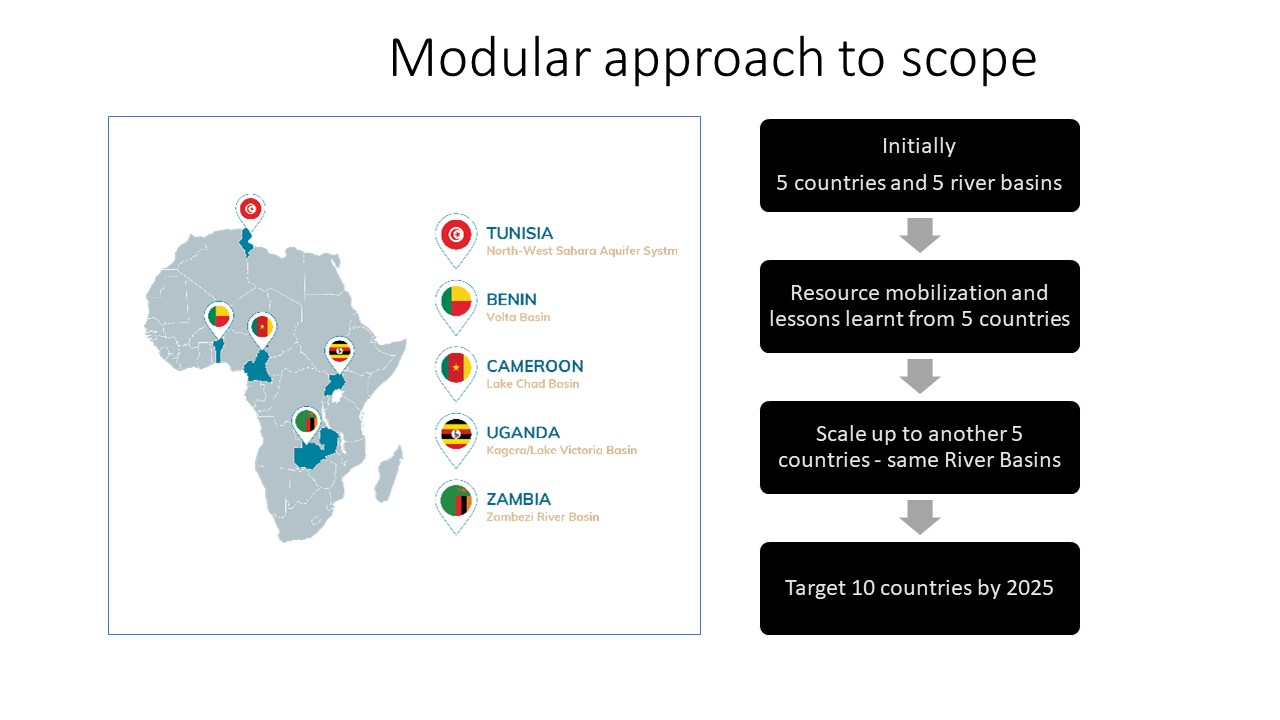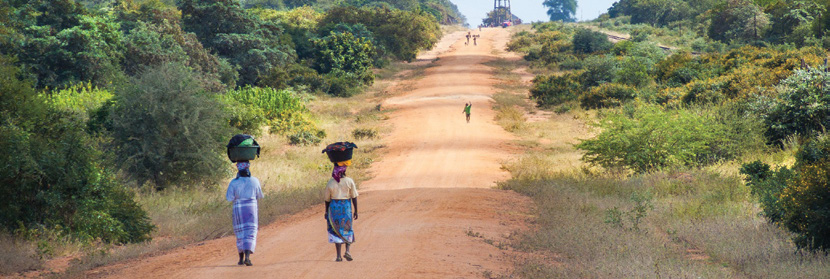In February 2021 during the 34th Ordinary Session Assembly of the African Union, African Heads of State and Government adopted the Continental Africa Water Investment Program (AIP), as part of the second phase of the Africa Union Development Agency’s Programme for Infrastructure Development in Africa Priority Action Plan (PIDA PAP2, 2021-2030). The Water, Climate, Development, and Gender Investments (AIP WACDEP-G) is one of the support programmes of the AIP. The goal of the AIP WACDEP-G is to ensure that the preparation, development, design, governance, and management of ongoing and new climate resilient water infrastructure investments, institutions, and job creation interventions strategically advance gender equality.
The overall objective is to transform gender inequalities at scale by promoting gender-transformative planning, decision-making and institutional development for climate resilient water investments in Africa. Gender inequalities in accessing productive assets and resources are often linked to access to water and disproportionately increase the burden of climate change in many African societies on women and girls. At the same time, infrastructure development across the continent is struggling to keep up with the necessary pace required to support Africa’s growing economy, address gender inequality and meet the socio-economic needs of the population. Unless gender equality is targeted at the systemic level, investments in water infrastructure on the continent will significantly exacerbate gender inequalities.
The overall objective is to transform gender inequalities at scale by promoting gender-transformative planning, decision-making and institutional development for climate resilient water investments in Africa.
Gender inequalities in accessing productive assets and resources are often linked to access to water and disproportionately increase the burden of climate change in many African societies on women and girls. Communities living in disadvantaged situations with high poverty prevalence in Africa are critically exposed to water challenges and the effects of climate change. Vulnerability to climate change intersects diverse forms of marginalization, amplified by gender, socio-economic class, age, and other social variables.
At the same time, infrastructure development across the continent is struggling to keep up with the necessary pace required to support Africa’s growing economy, address gender inequality and meet the socio-economic needs of the population. Particularly, planning, investments and institution building through water and climate change adaptation projects do not include or drive a gender-transformative vision, and instead, reflect structurally embedded cultural norms, practices and gendered power relations.
The Strategic Framework for WASH Climate Resilient Development is being applied in AIP WACDEP-G projects to ensure that water and sanitation projects under the AIP are designed to be climate resilient. The Strategic Framework was jointly developed by Global Water Partnership and The United Nations Children’s Fund (UNICEF) in 2017, in a response to growing demands from governments, development partners and WASH practitioners. The Strategic Framework looks to provide sustainable WASH service delivery by strengthening the climate resilience of WASH systems, and on investments to manage current and long-term climate variability. (source https://aipwater.org/wacdep-g/)
The initial AIP-WACDEP-G target countries were Benin, Cameroon, Uganda, Tunisia, and Zambia. Then with the lessons learned from the pilot countries, AIP WACDEP G scaled up to more countries across Africa.

